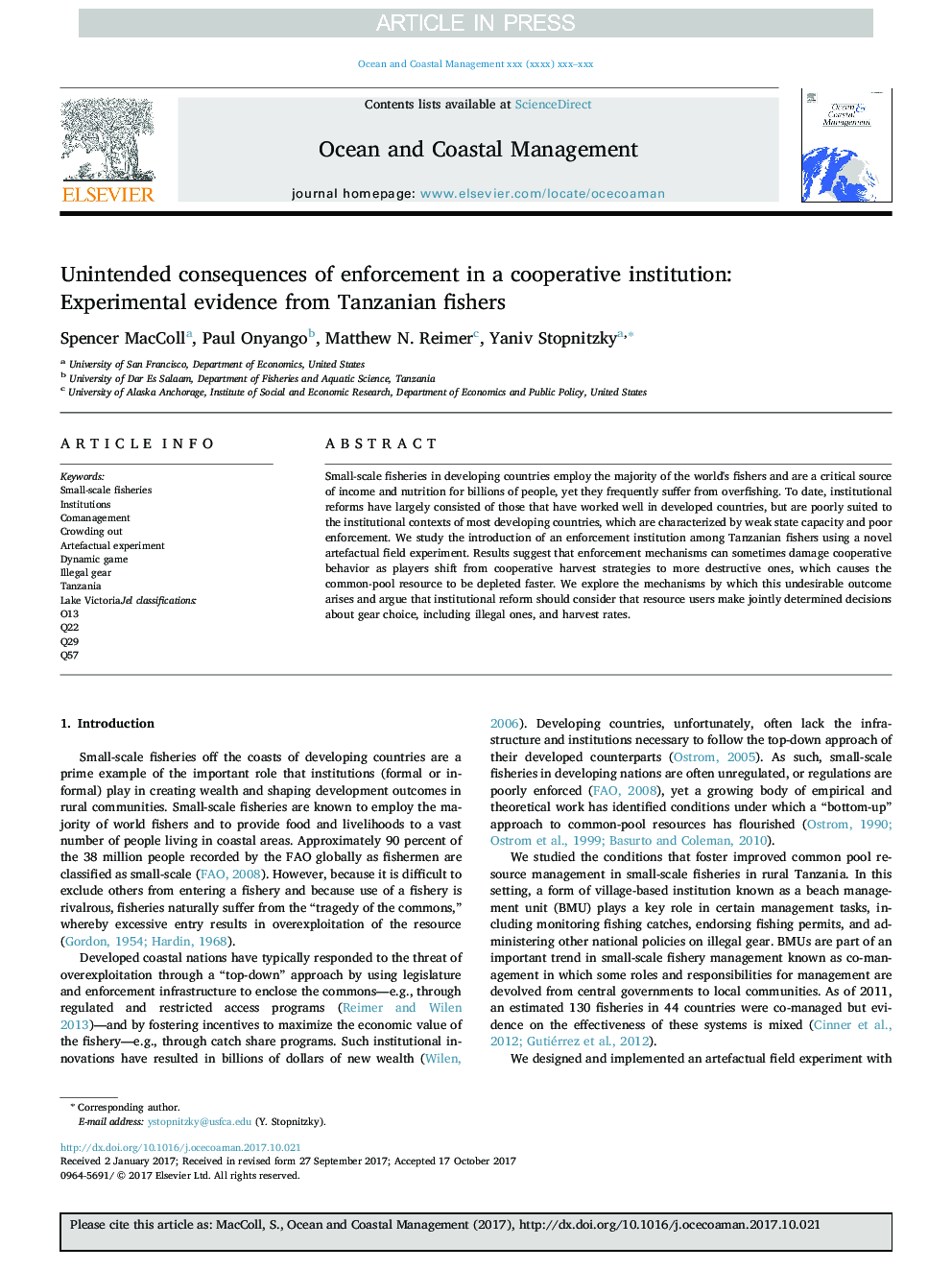| Article ID | Journal | Published Year | Pages | File Type |
|---|---|---|---|---|
| 8060592 | Ocean & Coastal Management | 2018 | 12 Pages |
Abstract
Small-scale fisheries in developing countries employ the majority of the world's fishers and are a critical source of income and nutrition for billions of people, yet they frequently suffer from overfishing. To date, institutional reforms have largely consisted of those that have worked well in developed countries, but are poorly suited to the institutional contexts of most developing countries, which are characterized by weak state capacity and poor enforcement. We study the introduction of an enforcement institution among Tanzanian fishers using a novel artefactual field experiment. Results suggest that enforcement mechanisms can sometimes damage cooperative behavior as players shift from cooperative harvest strategies to more destructive ones, which causes the common-pool resource to be depleted faster. We explore the mechanisms by which this undesirable outcome arises and argue that institutional reform should consider that resource users make jointly determined decisions about gear choice, including illegal ones, and harvest rates.
Keywords
Related Topics
Physical Sciences and Engineering
Earth and Planetary Sciences
Oceanography
Authors
Spencer MacColl, Paul Onyango, Matthew N. Reimer, Yaniv Stopnitzky,
